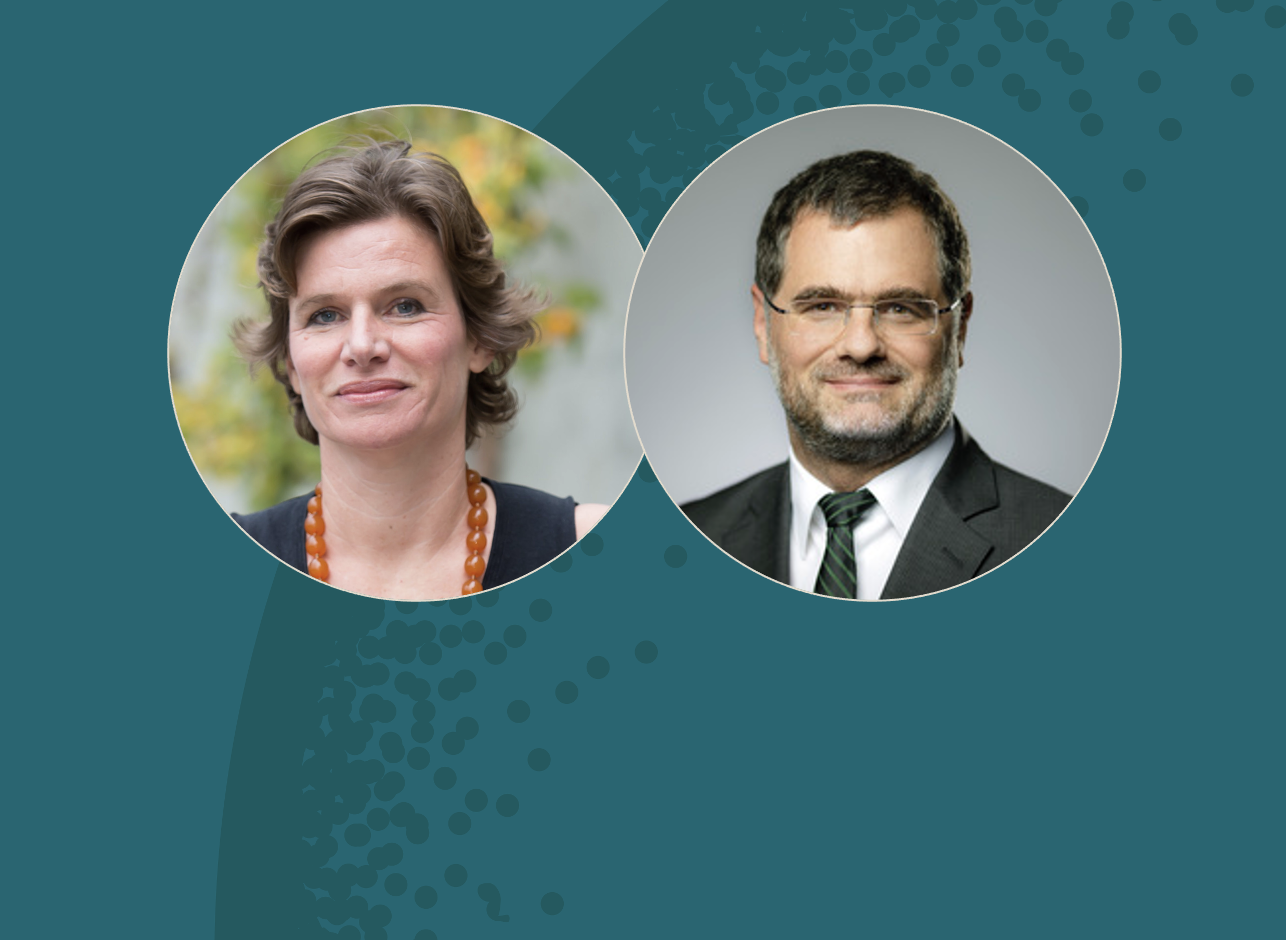THE STATE
“Mission Economy” - Short Cut Highlights
To solve the most pressing problems of our time, the role of the state must be rethought, argues Mariana Mazzucato in her latest book. We invited her to discuss the "mission economy" and its practical relevance for Germany with Wolfgang Schmidt.
BY
SONJA HENNENPUBLISHED
6. OCTOBER 2021READING TIME
5 MIN
In her latest book, Mission Economy, Mariana Mazzucato argues that we must rethink the capacities and role of government within the economy and society, and above all recover a sense of public purpose.
To solve the massive crises facing us, she is convinced we must use collaborative, mission-oriented thinking by using a stakeholder view of public private partnerships. We need to think bigger and mobilize our resources in a way that is as bold and inspirational as the moon landing—this time to tackle the most ‘wicked’ social problems of our time.
In Germany, the fundamental idea of mission-oriented thinking and policies is increasingly met with openness: The Commission of Experts for Research and Innovation (EFI) has recently advised the German Federal Government to adopt mission-oriented thinking as a new policy approach for research & innovation in view of major societal challenges. Earlier this year, SPD candidate for chancellor and Finance Minister Olaf Scholz started the electoral campaign with a commitment to a mission-oriented economic policy.
We are therefore delighted that Mariana has accepted to present the main ideas of “Mission Economy” and discuss its practical relevance for Germany with Wolfgang Schmidt, State Secretary at the Federal Ministry of Finance
The whole discussion as re-live
Key takeaways
In Mariana Mazzucato´s view, the world is facing many interwoven crises from climate to health and digitalization, which call for rethinking the role of the state. Mazzucato sees Europe at a crossroads with an opportunity to use the NextGenerationEU funds for mission-oriented policies that contribute to competitiveness and innovation-led growth. According to Mazzucato, there are no coherent strategies in the field of innovation policy across the continent at this moment. Hence, policymakers should draw on the valuable lessons from NASA´s Apollo program, in particular around language and framing. Most importantly, politicians should embrace the magnitude of the challenges, while at the same time highlighting the value-creating potential of public investment. She called for a new mindset that frames innovation as a collective effort between the public and private sector.
According to Mazzucato, more positive narratives about the role of the state are justified by success stories such as the United States Defense Advanced Research Projects Agency (DARPA), which led to the invention of GPS and the internet thanks to public financing. In order to be successful, public institutions should be mission-oriented, dynamic, un-politized, and they need to be measured through public value metrics beyond cost-benefit analyses to better reflect the necessity of risk-taking. One important element should be outcomes–based procurement as demonstrated by the mask shortage at the start of the pandemic. She also pointed out that the international community had failed to make Covid-19 vaccines accessible globally, which some are calling a state of “vaccine apartheid”.
Wolfgang Schmidt agreed that a renewal is needed in Germany and explained that Mariana Mazzucato´s vision was already partly reflected in the SPD´s “Zukunftsmissionen”. However, he also believes that path dependency makes changing course within well-established institutions difficult. He acknowledged the existing silos between ministries and outlined some of the bureaucratic obstacles for mission-lead policies. For instance, in Germany, efforts for interagency cooperation on digitalization have remained with mixed success so far.
In Mariana Mazzucato´s view, an accompanying economic theory that allows for investment-led growth is essential in fostering innovation. She reported that many countries are currently trying to create DARPA-inspired public institutions such as the Advanced Research and Invention Agency (ARIA) in the UK or the German Bundesagentur für Sprunginnovationen. She argued that they will not succeed without following a clear vision set by the central government and suggested that the SDGs could be transformed into missions by each country. Inter-agency communication and intersectionality can play a key role in overcoming silos, she added.
What else was important?
Whereas both speakers agreed that the public sector needs to attract qualified personnel with diverse professional backgrounds, the views on fiscal policy rules were less unanimous. Wolfgang Schmidt underlined the political realities that make a reform of German or EU fiscal policies unlikely and advocated for fully taking advantage of the flexibility of the debt brake. Mariana Mazzucato warned against fiscal tightening and gave examples from European countries which had cut their R&D spending as part of EU austerity measures.
